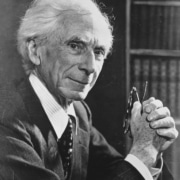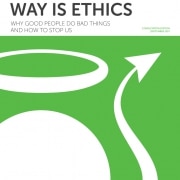Unethical Amnesia: A Term Big Business Cannot Afford to Forget
 Time heals all wounds. Time erodes even the mightiest mountain into a pebble. Time also, as a recent study highlighted in Harvard Business Review, enables people to forget their ethical lapses- a fact that has strong implications for businesses today.
Time heals all wounds. Time erodes even the mightiest mountain into a pebble. Time also, as a recent study highlighted in Harvard Business Review, enables people to forget their ethical lapses- a fact that has strong implications for businesses today.
Researchers found that “memories of unethical actions become obfuscated over time” coining the term “unethical amnesia.” The reason for this amnesia is simple: recalling our own misconduct is a threat to our positive self-image.
The study showed that when asked to recall cases where an unethical behavior exists, individuals seem to reimagine the event as it befits this projected self-image. In most cases, our self-image is consistent with a strong foundation of morals, despite what reality may demonstrate. These false projections about morality cause a clear, mental disengagement from acts that are deemed unethical.
Gaps in memory do not occur as a result of negative events. Rather, the lapse in memory stems directly from actions that cross “ethical boundaries” when enticed to act unethically. Because memory of past unethical actions is impaired, transgressions are more likely to reoccur over time.
The study indicates, “Unethical behavior produces changes in memory so that memories of unethical actions gradually become less clear and vivid than memories of ethical actions or other types of actions that are either positive or negative in valence”.
Research suggests that even a reoccurrence of small-scale acts of dishonesty such as “using public transportation for free” or “illegally downloading music” can have a long-term effect on the individual engaging in malpractices. In addition, the researchers propose that as time passes, memories of wrongdoing become increasingly more difficult to remember due to the “psychological distress” acts of infidelity evoke.
The authors of the study, Ethical Systems collaborator Francesca Gino of the Harvard Business School and friend of Ethical Systems Maryam Kouchaki of the Kellogg School of Management, highlight the significance of this issue: Understanding the psychology that drives decisions can help us make sense of corporate cheating scandals and, hopefully, behave more ethically, and promote more ethical behavior in our own organizations.
The “moral self-concept” is proven to have a profound effect on our decision-making process, yet it is common for individuals to defy their self-image and behave unethically when confronted with an opportunity to behave dishonestly and gain from it.
So, how do we mitigate the problem? Looking at business through the lens of behavioral sciences helps to better understand why “good, ordinary people repeatedly engage in unethical behavior and also how they distance themselves from such behavior over time.”
Recognizing unethical amnesia- and our tendencies towards it- is an important step in curbing harmful practices in business by acknowledging these human tendencies as a starting point. With that knowledge, we can address instances proactively where a wrongdoing has occurred, minimizing their short and long term impact.
That is a lesson not soon forgotten.
**image courtesy of theodysseyonline.com









